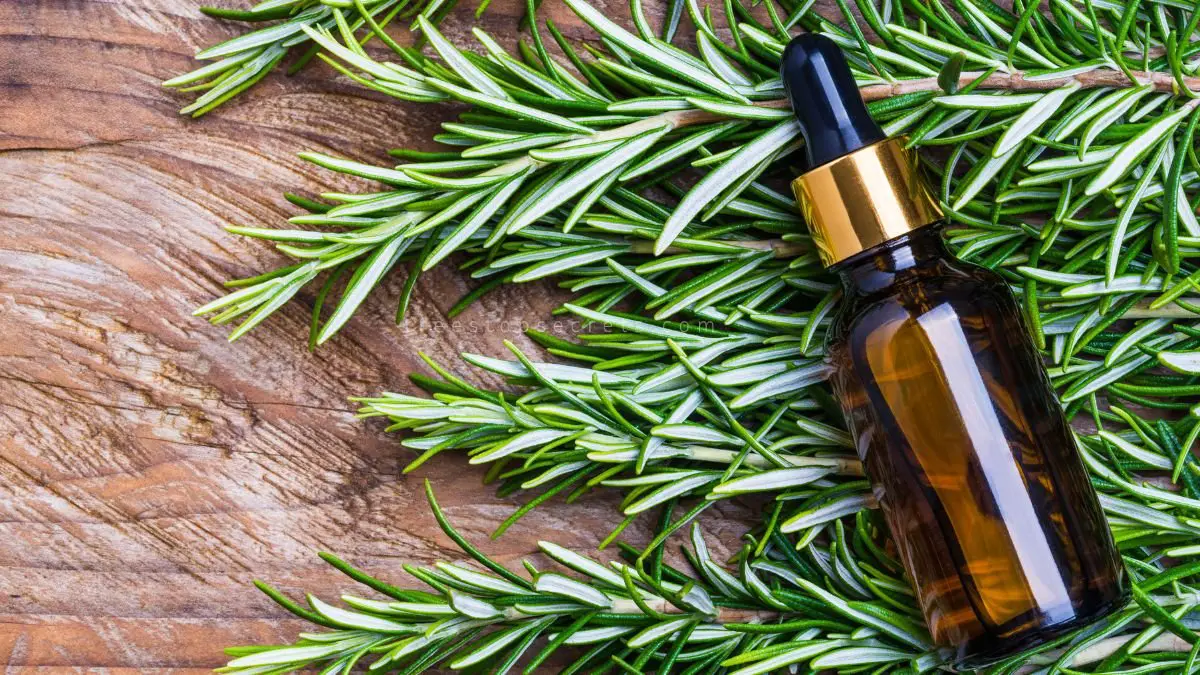Did you know that rosemary essential oil (rosmarinus officinalis) can work wonders for your hair, homemade shampoo and conditioner? This potent oil is packed with benefits that may surprise you. From promoting hair growth to improving scalp health, the uses of rosemary essential oil in hair care are diverse and impressive. Whether you're dealing with dryness, dandruff, or simply want to boost your hair's overall health, this natural remedy could be the solution you've been searching for.
Key Takeaways
- Utilize Rosemary Oil for Hair Care: Incorporate rosemary essential oil into your hair care routine for its numerous benefits.
- Apply with Care: When applying rosemary oil, ensure proper dilution to prevent any adverse effects.
- Expert Advice Matters: Follow expert tips on the usage of rosemary oil to maximize its effectiveness.
- Monitor for Side Effects: Stay vigilant for any potential side effects when using rosemary oil on your hair.
- Prioritize Safety: Adhere to safety precautions such as patch testing before widespread use of rosemary oil.
- Educate Yourself: Familiarize yourself with FAQs about rosemary oil to make informed decisions.
Discovering Rosemary Oil
Rosemary oil, a king ingredient derived from the rosmarinus officinalis plant, has been a staple in hair care routines for centuries. The historical significance of rosemary oil dates back to ancient civilizations like the Greeks and Romans, who valued it for its aromatic properties and hair-enhancing benefits.
Origins and Properties
Rosemary oil is known for its stimulating properties that promote hair growth and improve scalp health. Its antiseptic qualities help combat dandruff and soothe irritated scalp conditions. Rich in antioxidants, this essential oil nourishes the hair follicles and strengthens the roots, preventing premature graying.
Varieties of rosemary oil include rosemary verbenone, which is gentle on sensitive scalps and hair types, and rosemary cineole, known for its refreshing scent and clarifying effects. Each type offers unique benefits tailored to different hair concerns, making rosemary oil a versatile choice for various hair care needs.
Popular Uses
Many people incorporate rosemary oil into their hair care routine by adding a few drops to their shampoo or conditioner. It can also be mixed with carrier oils like coconut or jojoba oil for a hydrating scalp massage or used as a natural styling product to add shine and tame frizz.
The rise of DIY beauty treatments has further popularized the use of rosemary oil in homemade hair masks and serums. Mixing rosemary oil with other essential oils or natural ingredients like honey and avocado oil creates potent blends that promote hair growth and overall hair health.
In the commercial sector, rosemary oil is a common ingredient in shampoos, conditioners, and hair serums due to its proven benefits for hair growth and scalp health. Its versatility as a fragrant additive, essential oil, also contributes to its widespread use in various hair products on the market.
Benefits for Hair
Promoting Growth
Rosemary oil stimulates hair growth by improving scalp circulation, allowing more nutrients to reach hair follicles. This increased blood flow can lead to healthier hair follicles, promoting stronger and thicker hair growth. Combining rosemary oil with other essential oils such as argan and jojoba can further enhance these effects.
Preventing Loss
Rosemary oil helps prevent hair loss by strengthening hair shafts, reducing the likelihood of breakage and shedding. Its nourishing properties can improve overall hair health, leading to reduced hair loss over time. Consistency in using rosemary oil is key to maximizing its effectiveness in preventing hair loss.
Enhancing Strength
How to Apply Rosemary Oil
Direct Scalp Application
Directly applying rosemary oil to the scalp can promote hair growth and improve scalp health. Massaging the oil onto the scalp enhances blood circulation, aiding in better nutrient delivery. Using carrier oils like coconut or jojoba oil with rosemary oil helps prevent skin irritation.
When massaging rosemary oil onto the scalp, ensure gentle circular motions for optimal absorption. The massage action stimulates hair follicles, supporting healthy hair growth. Combining rosemary oil with carrier oils boosts its effectiveness and prevents potential skin sensitivities.
Mixing with Shampoo
Mixing rosemary oil with shampoo offers numerous benefits for hair care. The addition of rosemary oil can strengthen hair follicles and reduce dandruff. By enhancing the cleansing properties of shampoo, rosemary oil contributes to a healthier scalp.
To mix rosemary oil with shampoo effectively, add a few drops to your regular shampoo before each use. Thoroughly blend the two components to ensure even distribution of the oil throughout your hair. This simple step can significantly improve the overall health and appearance of your hair.
Expert Tips on Usage
Optimal Frequency
Using rosemary essential oil for hair care is most effective when applied 2-3 times a week. Consistency is key for optimal results. Applying the oil regularly helps in nourishing the scalp and promoting hair growth naturally. To see noticeable improvements, it is crucial to maintain this routine over time.
To witness the benefits of rosemary oil, it should be used consistently at least twice weekly. This frequency allows the oil to penetrate the scalp, stimulating blood circulation and encouraging hair follicle strength. For individuals aiming to improve hair thickness and overall health, adhering to this schedule is vital.
Consistency in applying rosemary oil at the recommended frequency is essential for achieving desired outcomes. Regular use ensures that the scalp receives continuous nourishment and stimulation, leading to healthier hair growth. By incorporating this practice into your hair care routine consistently, you can experience long-term benefits.
Best Combinations
Combining rosemary oil with other essential oils can amplify its benefits for hair health. Pairing rosemary oil with peppermint oil creates a potent blend that promotes hair growth by stimulating the scalp and enhancing circulation. This combination works synergistically to improve overall hair health.
The combination of rosemary oil with other essential oils like lavender or cedarwood can provide added advantages for hair care. These blends not only promote hair growth but also contribute to scalp health and reduce dandruff. Mixing rosemary oil with complementary oils enhances its properties, offering a holistic approach to hair care.
When looking to enhance the benefits of rosemary oil, consider combining it with oils such as lavender or cedarwood for a more comprehensive approach to hair care. These combinations not only support healthy hair growth but also address common scalp issues like dandruff, providing a well-rounded solution for improved hair health.
Recognizing Side Effects
Identifying Reactions
Allergic reactions to rosemary essential oil on hair can manifest as redness, itching, or swelling on the scalp. Signs of allergic contact dermatitis, such as rash or hives, may also occur.
It is crucial to monitor skin reactions diligently when using rosemary oil. If you experience persistent irritation or discomfort, discontinue use immediately.
When to Stop Use
Indicators that signal the need to stop using rosemary oil on hair include worsening skin irritation and inflammation. Continued use for sensitive individuals can lead to severe allergic reactions.
Consult a dermatologist promptly if you notice any adverse effects from using rosemary oil on your hair. Professional guidance is essential for managing potential risks effectively.
Safety and Precautions
Allergy Testing
Before using rosemary essential oil on your hair, it is crucial to conduct allergy testing. This step helps identify any potential allergic reactions that may occur when the oil comes in contact with your skin or scalp. Patch testing is a common method used to check for allergies.
To perform an allergy test with rosemary oil, dilute a small amount of the oil in a carrier oil like coconut or olive oil. Apply this mixture to a small area on your skin, such as the inner forearm. Wait for 24 hours and observe for any redness, itching, or irritation. If no reaction occurs, it is generally safe to use the oil on your hair.
Dosage Guidelines
When using rosemary essential oil for hair care, it is important to follow dosage guidelines to ensure safety and effectiveness. The recommended dosage typically ranges from 1-3% dilution in carrier oils like jojoba or almond oil. Using too much undiluted rosemary oil can lead to skin irritation.
For each application on your hair, aim for about 6-8 drops of rosemary oil mixed with a tablespoon of carrier oil. This ratio provides a balanced concentration that delivers the benefits of the oil without causing any harm. Adhering to these guidelines will help you avoid adverse effects while enjoying the perks of rosemary oil for hair care.
FAQs on Rosemary Oil
Hair Types Suitability
Rosemary oil is suitable for all hair types, from oily to dry. It interacts differently based on hair texture, providing benefits like moisturizing dry hair and balancing oil production in greasy hair.
In curly or wavy hair, rosemary oil can help define curls and reduce frizz, while in straight hair, it adds shine and promotes overall scalp health. The versatility of rosemary oil makes it ideal for addressing various hair care needs.
Timeframe for Results
Results from using rosemary oil on hair typically appear within a few weeks to a couple of months. Factors like consistency of use, hair condition, and individual scalp health can influence how soon you notice improvements.
Patience and consistency are key when using rosemary oil for hair care. Regular application and massage into the scalp can stimulate blood circulation, promoting healthier hair growth over time.
Closing Thoughts
Incorporating rosemary essential oil into your hair care routine can offer a myriad of benefits, from promoting growth to improving scalp health. By understanding how to properly apply and use this natural remedy, you can harness its potential for healthier and more vibrant hair. Remember to consider expert tips and precautions to maximize the advantages while minimizing any risks associated with its usage. Stay informed about potential side effects and always prioritize safety in your hair care practices.
Take the initiative to introduce rosemary oil into your hair care regimen today and experience the transformative effects firsthand. Your journey to healthier, luscious locks starts with a simple yet powerful addition – rosemary essential oil. Embrace this natural solution and unlock the full potential of your hair's beauty.
Frequently Asked Questions
Can rosemary essential oil promote hair growth?
Yes, rosemary oil can stimulate hair follicles, improve circulation to the scalp, and potentially promote hair growth. Its anti-inflammatory properties may also help with conditions that contribute to hair loss.
Is it safe to apply rosemary essential oil directly to the scalp?
It is recommended to dilute rosemary oil with a carrier oil before applying it to the scalp. Direct application of undiluted essential oils may cause skin irritation or allergic reactions in some individuals.
How often should I use rosemary essential oil on my hair?
For most people, using rosemary oil 1-2 times per week should be sufficient. Overuse of essential oils can lead to scalp irritation or sensitization over time, so it's important not to exceed recommended usage.
Can rosemary essential oil help with dandruff?
Rosemary oil's antimicrobial properties may help combat dandruff by reducing fungi and bacteria on the scalp. Regular use of diluted rosemary oil in a carrier oil as a scalp treatment could potentially improve dandruff symptoms.
Are there any contraindications for using rosemary essential oil on hair?
Individuals who are pregnant, breastfeeding, have epilepsy, or certain medical conditions should consult a healthcare provider before using rosemary essential oil. It's important to consider personal health factors and potential interactions before incorporating it into your hair care routine.
Image Source: Paid image from CANVA




